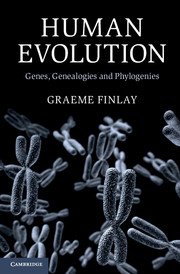Prologue
Published online by Cambridge University Press: 05 June 2014
Summary
Charles Darwin did not discover biological evolution. The concept had been brewing in people’s minds for decades and Darwin grew up in an ambience of evolutionary speculation. His own grandfather, Erasmus, who died seven years before Charles was born, had ventured the possibility that all warm-blooded animals had evolved from a single ancestor. Erasmus undoubtedly had a great influence on his grandson through family links and his book Zoonomia.
In the first half of the nineteenth century, many biologists propounded the idea that humans had evolved from single-celled microbes. The physician-turned-biologist Robert Grant embraced evolutionary ideas from both Erasmus Darwin and the French evolutionary theorist Lamarck (who had proposed that organisms generated adaptive responses when presented with environmental challenges, and that these were heritable). Grant, in turn, passed these ideas on to the young Charles Darwin when he was studying medicine at Edinburgh. Grant then moved to University College London where he continued to popularise evolutionary thinking.
A book promoting the idea that humans evolved from simple ancestors (Vestiges of the Natural History of Creation) was published in 1844. It was published anonymously, but was later revealed as the work of a journalist, Robert Chambers. It was derided by its reviewers, but remained hugely popular during the rest of the nineteenth century. The philosopher Herbert Spencer (who coined the term ‘survival of the fittest’) also wrote on themes of human and social evolution. Spencer contributed to the wider intellectual environment of receptivity to evolutionary ideas. These works prepared popular thinking for Darwin’s Origins when it was finally published in 1859 [1].
- Type
- Chapter
- Information
- Human EvolutionGenes, Genealogies and Phylogenies, pp. 1 - 20Publisher: Cambridge University PressPrint publication year: 2013



